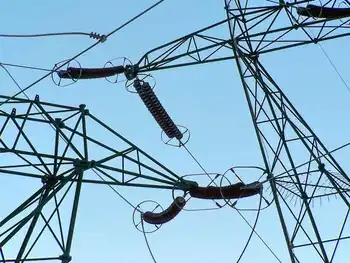Spain plans to halt coal imports, lift power costs
MADRID, SPAIN - Spanish government plans to force utilities to burn domestic coal further slash coal imports in what has been a key European market and help cap coal prices, utilities, producers and analysts said.
Spain imported over 18 million tonnes of steam coal in 2009 but imports could fall to only a few million tonnes this year due to strong hydro availability and the forced use of domestic fuel, utilities said.
I think the decree is the final blow for imports, said Amrita Sen, an analyst for Barclays Capital in London, noting that coal faced increasing competition from wind and hydropower.
We expect Spanish coal imports to fall by as much as 3.7 million tonnes in 2010, especially given the healthy domestic stockpiles.
Spain has been one of the strongest markets for coal exports from South Africa, Colombia, the U.S. and Russia for many years. The fall in demand across Europe has forced exporters to divert substantial tonnage to Asia and led to an unprecedented price distortion.
The delivered cost of coal shipped to Europe should reflect the price at the port of loading plus the freight cost but at present the delivered Europe price of around $77 a tonne is $10 lower than the price at South Africas Richards Bay port.
This decree will make the situation even worse. You could see zero imports for some time, one utility source said.
Spanish coal cannot compete with imports and has a low energy content, but the government says it is the only fuel the country can produce domestically in significant quantities and needs support to guarantee energy supplies.
A government decree published on February 27 will make it legally binding for power plants supplying the wholesale power market to step aside for electricity offered by plants burning domestic coal.
Spain has to import about 80 percent of its energy needs and the government says European Union rules allow up to 15 percent of primary energy used in power generation to be home produced.
The energy watchdog CNE estimates the plan will mean burning up stockpiles of unused domestic coal — currently 11.4 million tonnes — as well as 10 million tonnes to be mined by 2012.
The plan is expected to come into force within two months and traditional suppliers expect it will force them to look elsewhere for alternatives to a market which has in recent years topped 20 million tonnes a year.
Coal exporters and traders say the European market for thermal coal has been shrinking and will continue to in the coming years as aging coalfired power plants are replaced by gas plants.
After consultation with EU competition authorities, the government recently removed clauses in the February 27 decree which proposed compensating operators of plants — mainly gasfired — whose output will be displaced by coal.
The decree concerns us, not because it may allow state support to coal, but because we understand it will cause a serious loss to those plants which will not enter the market, a spokesman for Spanish power producers group UNESA said.
If a special policy for coal is adopted for strategic reasons, then it must be compatible with the market and not unsettle prices, he added.
Spanish gas association Sedigas has calculated that shutting gas plants out of the market will raise the average wholesale or pool price of electricity not entitled to subsidies to 56.35 euros $78.78 per megawatt hour from a current 42.46 euros.
Utilities also worry that the decree will upset costly decisions to invest in gasfired plants, which may now have to lie idle.
Although Spains coal industry has shrunk over the years and its share of electricity generation has dwindled, mining groups say it still provides 50,000 direct and indirect jobs.
The government does not want to add to a dole queue of 4.2 million and a benefits bill which has swollen a budget deficit and roiled financial markets.
But environmental groups argue that supporting coal runs counter to government pledges to cut greenhouse gas emissions and promote a greener economy, which it says can also create muchneeded jobs.
Spain estimates its emissions in the key 200812 period will be almost 20 percent above the upper limit it was set under the terms of the Kyoto Protocol.
Related News

California Utility Cuts Power to Massive Areas in Northern, Central California
LOS ANGELES - California utility Pacific Gas and Electric Co. (PG&E) has cut off power supply to hundreds of thousands of residents in Northern and Central California as a precaution to possible breakout of wildfires.
PG&E confirmed that about 513,000 customers in many counties in Northern California, including Napa, Sierra, Sonoma and Yuba, were affected in the first phase of Public Safety Power Shutoff, a preemptive measure it took to prevent wildfires believed likely to be triggered by strong, dry winds.
The utility said the decision to shut off power was "based on forecasts of dry, hot and windy weather including potential…




